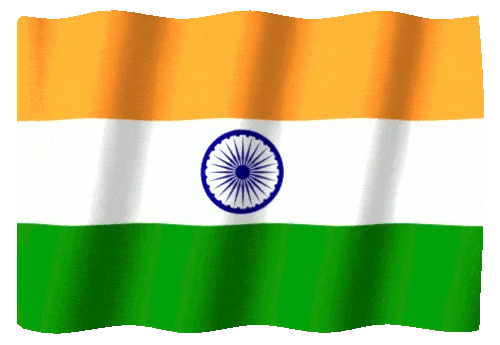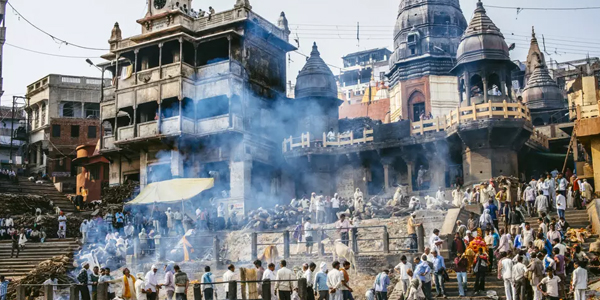Scindhia Ghat, Varanasi
Scindhia Ghat is quite a picturesque and peaceful place, with none of the grimness of nearby Manikarnika Ghat. Of particular interest is the partially submerged Shiva Temple at the water's edge. It sunk during the construction of the ghat in 1830. The narrow maze of alleyways above the ghat hides a number of Varanasi's important temples.
Assi Ghat, Varanasi
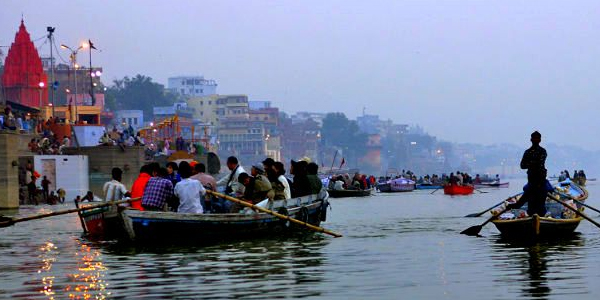
You'll find Assi Ghat where the Ganges River meets the river Assi. It's located at the extreme southern end of the city, and hence it's not as crowded and chaotic as some of the other ghats. However, it is an important ghat for Hindus.Pilgrims bathe there before worshiping Lord Shiva, in the form of huge lingam under a nearby pipal tree.
Darbhanga Ghat, Varanasi
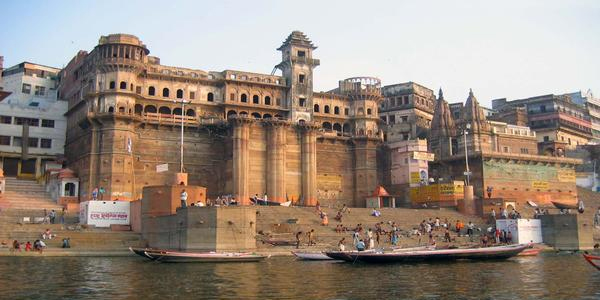
Darbhanga Ghat is a photogenic favorite! It's one of the most visually appealing, and architecturally impressive, ghats. It features an imposing palace hotel that you can stay in. It was built in the early 1900s by the royal family of Bihar. Adjoining it is Munshi Ghat, constructed in 1912 by Sridhara Narayana Munshi, finance minister of Darbhanga.
Dasaswamedh Ghat, Varanasi
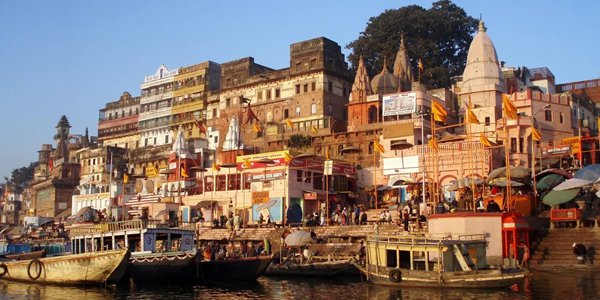
Dasaswamedh Ghat is the heart of the action and the top attraction in Varanasi. One of the oldest and holiest Varanasi ghats, it's where the famous Ganga aarti takes place every evening. According to Hindu mythology, Lord Brahma created the ghat to welcome Lord Shiva. There's also a hectic marketplace around the ghat.
Man Mandir Ghat, Varanasi
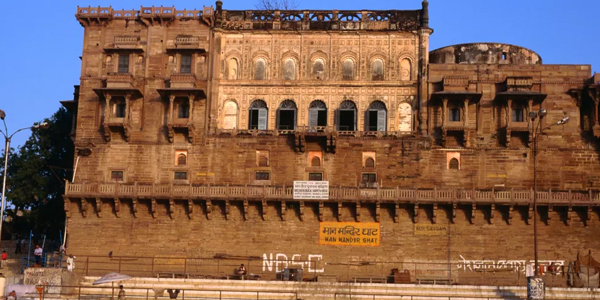
Another very old Varanasi ghat, Man Mandir Ghat is notable for its exquisite Rajput architecture. Rajput Maharajah Man Singh of Jaipur built his palace there in 1600. An additional attraction, the observatory, was added in the 1730s by Sawai Jai Singh II. The astronomical instruments are still in good condition and it's possible to take a look at them.
Bhonsale Ghat, Varanasi
Chet Singh Ghat, Varanasi

Chet Singh Ghat has quite a bit of historical importance. It was the site of the 18th century battle between Maharaja Chet Singh, who ruled Varanasi, and the British. Chet Singh built a small fortress at the ghat but unfortunately he was defeated by the British, who captured the fort and imprisoned him in it.

